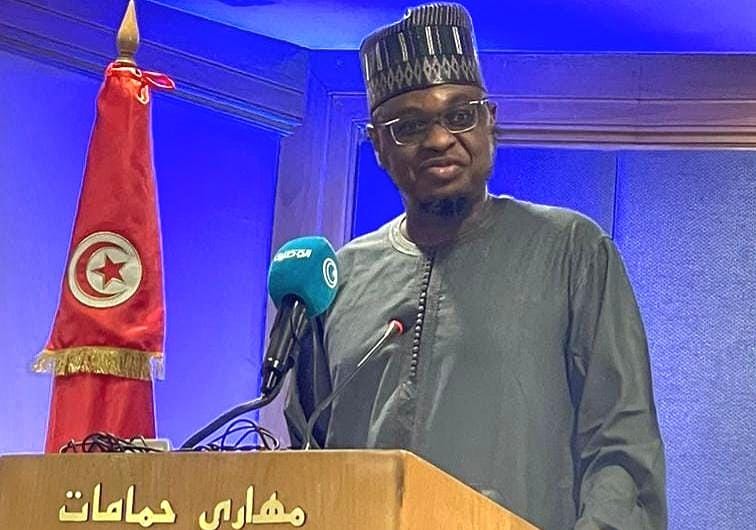Artificial Intelligence (AI) has the potential to play a transformative role in conflict resolution and peacebuilding initiatives, according to Professor Ali Isa Pantami, former Minister of Communication and Digital Economy.
The scholar made the remark as the keynote speaker at the Leadership Training in Peace and Security (LTIPS) Program on October 24 in Rabat, Morocco.
The flagship event was organized by the Islamic World Educational, Scientific and Cultural Organisation (ICESCO).
Addressing over 180 youth leaders from 68 countries, Pantami spoke on the topic, “Artificial Intelligence and Peace: Harnessing Technology in Conflict Resolution and Peace-Building.”
He highlighted the critical role of AI in the Fourth Industrial Revolution and its anticipated impact on future advancements.
“AI is a double-edged sword,” he stated, emphasizing its dual potential to either promote peace or escalate conflict. “We must be proactive in using AI to achieve positive outcomes and foster harmony.”
Pantami traced the roots of AI to the algorithms developed by the ancient mathematician Abu-Abdillah Muhammad Ibn Musa Al-Khawarizmi, whose work laid foundational principles over 1,174 years ago.
While the term “Artificial Intelligence” was coined by John McCarthy in 1956, the professor noted that it is the algorithms that are vital to AI, enabling systems to process data, make informed decisions, learn from experiences, and enhance their functionality.
Pantami said AI techniques such as predictive analytics, sentiment analysis, and early warning systems can facilitate conflict prevention. For conflict resolution, he highlighted the effectiveness of virtual mediation platforms, natural language processing, and game theory-based models.
“By harnessing tools such as social network analysis and AI-driven peace education programs, we can make significant strides towards building sustainable peace,” he added.
The former minister urged the participants to develop AI applications aimed at conflict prevention and resolution, and encouraged them to master the intricacies of AI development, referencing the World Economic Forum’s projection that AI could create 97 million new jobs by 2025.
Pantami’s address resonated with the diverse audience, inspiring young leaders to explore the intersection of technology and peacebuilding, and to envision a future where AI serves as a catalyst for global harmony.
The Leadership Training in Peace and Security Program marked a milestone in fostering dialogue and collaboration among the next generation of peace advocates on an international scale.

 Join Daily Trust WhatsApp Community For Quick Access To News and Happenings Around You.
Join Daily Trust WhatsApp Community For Quick Access To News and Happenings Around You.


